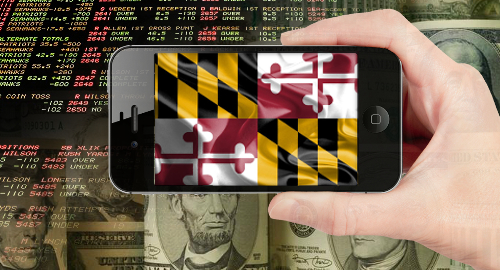 The new year is only six weeks old, yet already 10% of US states have filed new legislation aimed at authorizing legal sports betting within their borders.
The new year is only six weeks old, yet already 10% of US states have filed new legislation aimed at authorizing legal sports betting within their borders.
On Wednesday, a pair of Maryland Republican state delegates – Jason Buckel and Kevin Hornberger – filed HB 989, which would establish a “Task Force to Study the Implementation of Sports Gaming.” Its aim would be to recommend the best foot forward should there be some change in US federal law that currently prohibits sports betting.
The Task Force would consist of three delegates, three state senators, the director of Maryland’s gaming regulatory agency, plus representatives from the state’s video lottery operators (aka casino operators) and horseracing licensees. The latter two groups would be eligible to apply for a ‘sports gaming license.’
HB 989 requires a lot of things to happen before it would take effect, including repeal or amendment of the federal PASPA sports betting prohibition. Even then, HB 989 would require approval via a voter referendum at the next November general election following passage.
HB 989 is a little more tentative than the sports betting bills introduced so far this year in four other states – Michigan, New York, Pennsylvania and South Carolina – but it’s further evidence that state legislatures are growing bolder in declaring that sports betting’s status quo has got to go.
The fate of all of state efforts to overturn PASPA hinges on whether or not the US Supreme Court agrees to hear New Jersey’s appeal of lower court rulings that struck down its own sports betting plans. Last month, the Court asked the acting Solicitor General to submit a brief outlining the White House’s position on the merits of New Jersey’s case.
Nevada is currently the only state in which single-game sports bets are legal. The state’s sportsbooks have shown steady and significant wagering growth in recent years, culminating in record betting handle on last Sunday’s Super Bowl.
A Seton Hall Sports Poll conducted after Sunday’s big game found that only 10% of its 661 respondents reported placing some kind of wager – an actual bet, participation in a betting pool, fantasy betting, etc. – on the outcome. But 15% said they would have placed a bet if betting was legal.